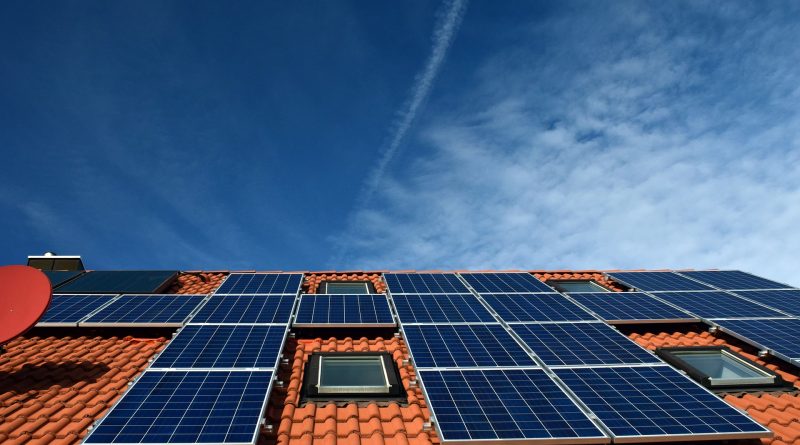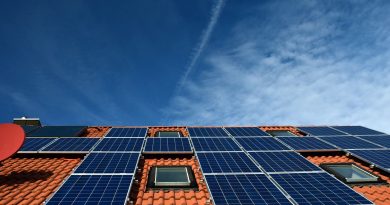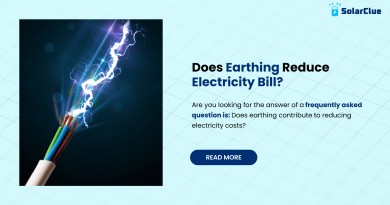Operational Mechanism of Off Grid Solar Plant
In recent years, renewable energy sources have gained immense popularity as a reliable and sustainable solution for our energy needs. Among these, solar power stands out as one of the most accessible and efficient sources of clean energy. Off-grid solar plants have emerged as a viable option for those seeking to reduce their reliance on conventional power grids. In this blog, we will explore how off-grid solar plants work and the benefits they offer to individuals and communities.
1. Understanding Off-Grid Solar Systems
Off-grid solar systems, also known as standalone solar systems, operate independently of the traditional electric grid. These systems are typically used in remote areas where connecting to the grid is either impractical or costly. Off-grid solar plants consist of four main components: solar panels, a charge controller, batteries, and an inverter.
2. Harvesting Solar Energy with Solar Panels
Solar panels are fundamental to any off-grid solar plant. They comprise numerous photovoltaic (PV) cells that absorb sunlight and convert it into direct current (DC) electricity. These panels are designed to capture as much solar energy as possible, even on cloudy days. The size and number of solar panels required depend on the energy consumption needs of the user.
3. Regulating Charge with the Charge Controller
The charge controller plays a crucial role in off-grid solar systems by regulating the flow of electricity between the solar panels and the batteries. It ensures that the batteries are not overcharged or damaged by controlling the voltage and current. Charge controllers also prevent reverse flow of current during nighttime or when energy consumption is lower, helping to maximize the lifespan of the batteries.
4. Storing Energy with Batteries
Batteries are essential for off-grid solar plants to store excess energy generated during the day for use when sunlight is unavailable or limited, such as during the night or on cloudy days. The batteries store the direct current (DC) electricity produced by the solar panels and convert it into alternating current (AC) electricity when needed. Deep cycle batteries, like lead-acid or lithium-ion batteries, are commonly used in off-grid solar systems due to their ability to withstand recurrent charging and discharging cycles.
5. Converting DC to AC with the Inverter
Since most household appliances and devices operate on alternating current (AC), an inverter is necessary to convert the stored DC electricity from the batteries into AC electricity. The inverter ensures that the electricity produced is compatible with the end-use devices, making it suitable for powering lights, appliances, and other electronic equipment.
6. Energy Efficiency and Load Management
To ensure efficiency, off-grid solar plants require careful management of the energy load. Users must be conscious of their energy consumption and choose energy-efficient appliances. Load management involves distributing energy usage throughout the day, prioritizing essential appliances, and understanding the available energy capacity of the system.
7. Benefits of Off-Grid Solar Plants
Off-grid solar systems offer numerous advantages, contributing to their increasing popularity worldwide. Firstly, they provide electricity to remote areas where grid connection is challenging or expensive. These systems promote energy independence and reduce reliance on non-renewable energy sources, leading to a lower carbon footprint. Additionally, off-grid solar plants enable individuals and communities to enjoy stable and uninterrupted power supply, even during grid failures or natural disasters.
Conclusion
Off-grid solar plants offer a reliable and sustainable solution for individuals and communities seeking independence from traditional power grids. By harnessing the power of the sun through solar panels, regulating charge with the help of charge controllers, storing excess energy in batteries, and converting DC to AC with inverters, these plants provide a clean energy alternative in areas where grid connection is inaccessible or impractical. With careful load management and energy efficiency, off-grid solar systems offer stable power supply, energy independence, and reduced environmental impact. As renewable energy continues to evolve and advance, off-grid solar plants are poised to play a crucial role in shaping a greener and more sustainable future.
Discover the power of sustainable living with Off-Grid Solar! Contact SolarClue® for expert guidance and premium solar solutions. Embrace energy independence today.
Frequently Asked Questions
An off-grid solar plant operates independently, harnessing sunlight to generate power without relying on the traditional grid.
Off-grid solar plants offer energy independence, environmental sustainability, and the ability to power remote locations.
Yes, off-grid solar systems are designed to function effectively in various climates, adapting to sunlight availability.
Unlike grid-tied systems, off-grid solar plants function autonomously, storing excess energy for use during periods of low sunlight.
The size depends on your energy needs. Consult with experts to determine the appropriate capacity for your household.
Absolutely. Off-grid solar solutions are scalable and can meet the energy demands of various commercial enterprises.
With proper maintenance, off-grid solar systems can have a lifespan of 25 years or more.
Battery storage serves as a reliable backup, ensuring a continuous power supply even when sunlight is scarce.
Depending on local regulations, you may have the opportunity to sell surplus energy back to the grid.
Many governments offer incentives, tax credits, and grants to promote the adoption of off-grid solar solutions.



